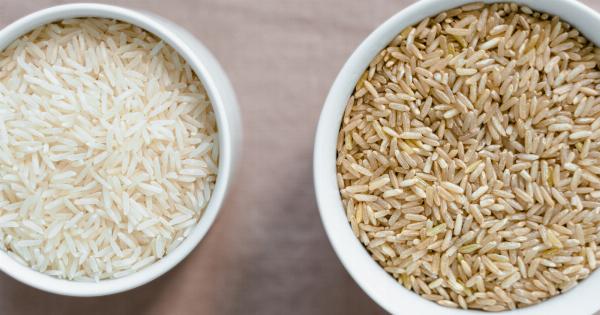Irritable bowel syndrome (IBS) is a common digestive disorder that affects millions of people worldwide.
It is characterized by a group of symptoms that include abdominal pain or discomfort, bloating, and changes in bowel habits such as diarrhea or constipation. Although the exact cause of IBS is not known, it is believed that diet plays a significant role in its development and management. Certain foods can trigger IBS symptoms, while others can soothe and ease them.
In this article, we will discuss the best foods to ease IBS symptoms.
Foods to Include in Your Diet
1. Low-FODMAP Foods
FODMAPs (Fermentable Oligosaccharides, Disaccharides, Monosaccharides, and Polyols) are a group of carbohydrates that are poorly absorbed in the small intestine and can cause IBS symptoms.
Low-FODMAP foods are those that contain low levels of FODMAPs and are safe to eat for people with IBS. Examples of low-FODMAP foods include:.
- Vegetables: carrots, zucchini, eggplant, broccoli, lettuce, spinach, tomato
- Fruits: banana, blueberries, grapes, honeydew melon, kiwi, orange, pineapple, strawberry
- Grains: rice, quinoa, oats, gluten-free bread, pasta, crackers
- Protein: chicken, beef, fish, tofu, eggs, firm tofu
- Nuts and seeds: almonds, macadamia nuts, pumpkin seeds, sunflower seeds
- Dairy: lactose-free milk, cheese, yogurt
2. Soluble Fiber Foods
Soluble fiber is a type of fiber that dissolves in water and forms a gel-like substance in the digestive tract. It can help regulate bowel movements and ease constipation, which are common IBS symptoms. Foods that are high in soluble fiber include:.
- Oatmeal
- Barley
- Psyllium husk
- Beans
- Peas
- Lentils
- Chia seeds
- Flax seeds
- Apples
- Berries
- Pears
3. Probiotic Foods
Probiotics are live bacteria and yeasts that are beneficial for gut health. They can help improve digestion, boost the immune system, and reduce inflammation in the gut, which can all benefit people with IBS. Foods that are high in probiotics include:.
- Yogurt
- Kefir
- Fermented vegetables like pickles, sauerkraut, and kimchi
- Miso
- Tempeh
4. Ginger
Ginger is a natural anti-inflammatory and can help reduce inflammation in the gut, which can help soothe IBS symptoms. It can also improve digestion and reduce bloating. Ginger can be consumed in various forms, such as:.
- Tea
- Candied ginger
- Ginger supplements
- Fresh ginger in cooking
5. Peppermint
Peppermint is a natural antispasmodic that can help relax the muscles in the digestive tract and reduce cramping and bloating. It can also help reduce inflammation and improve digestion. Peppermint can be consumed in various forms, such as:.
- Tea
- Capsules or supplements
- Fresh leaves in cooking
Foods to Avoid
While certain foods can help ease IBS symptoms, there are also foods that people with IBS should avoid as they can trigger or worsen symptoms. These foods include:.
- High-FODMAP foods, such as garlic, onions, beans, wheat, and some fruits
- Dairy products for those with lactose intolerance
- Fatty foods, such as fried foods, creamy sauces, and fatty meats
- Caffeine and alcohol
- Artificial sweeteners
- Carbonated drinks
- Spicy foods
Conclusion
Irritable bowel syndrome is a common digestive disorder that can be managed with dietary changes. Including low-FODMAP foods, soluble fiber foods, probiotic foods, ginger, and peppermint in your diet can help ease IBS symptoms.
Additionally, avoiding high-FODMAP foods, dairy products for those with lactose intolerance, fatty foods, caffeine and alcohol, artificial sweeteners, carbonated drinks, and spicy foods can help prevent IBS symptoms from flaring up. It is important to consult with a healthcare provider or a registered dietitian before making any significant changes to your diet, especially if you have any underlying medical conditions.




























